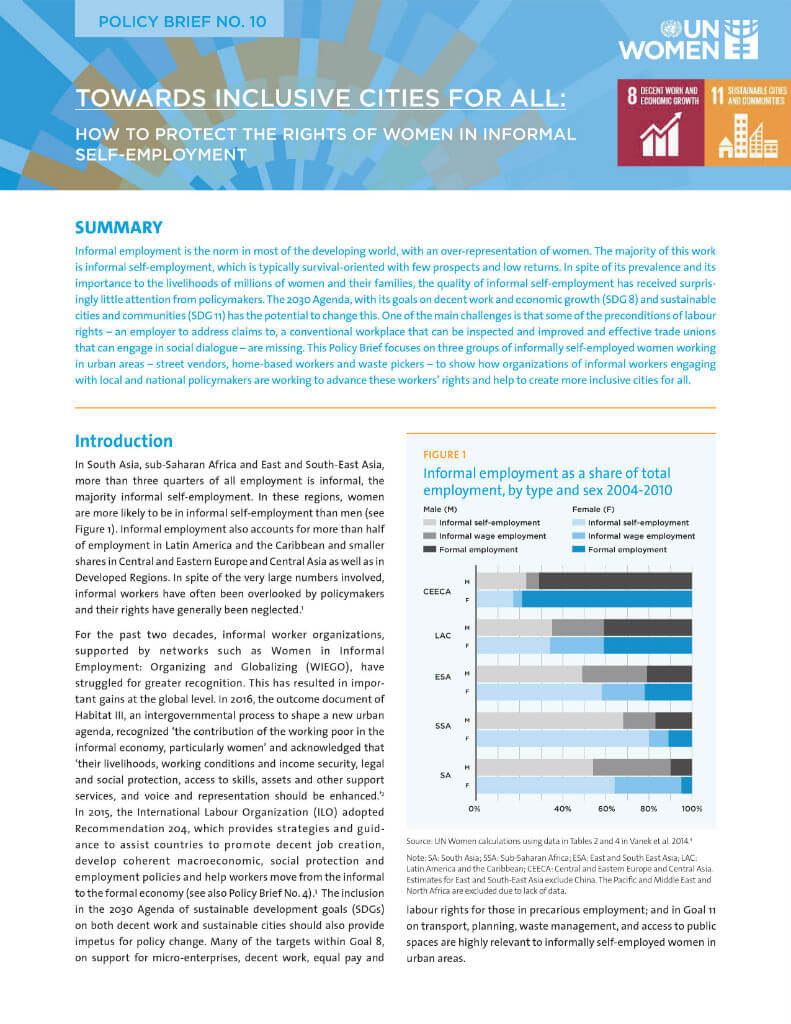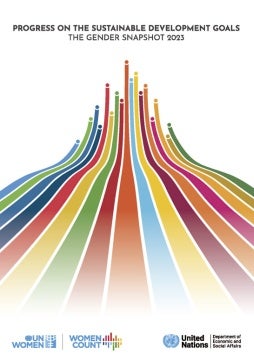Towards inclusive cities for all: How to protect the rights of women in informal self-employment
This brief synthesizes research findings, analysis, and policy recommendations on the gender dimensions of informal employment in cities, and was produced for the UN Women policy brief series.
Informal employment is the norm in most of the developing world, with an over-representation of women. Most of this work is informal self-employment, which is typically survival-oriented, with few prospects and low returns. Despite its prevalence and its importance to the livelihoods of millions of women and their families, the quality of informal self-employment has received surprisingly little attention from policymakers.
The 2030 Agenda for Sustainable Development, with its goals on decent work and economic growth (SDG 8) and sustainable cities and communities (SDG 11), has the potential to change this. One of the main challenges is that some of the preconditions of labour rights—an employer to address claims to, a conventional workplace that can be inspected, and improved and effective trade unions that can engage in social dialogue—are missing.
This policy brief focuses on three groups of informally self-employed women working in urban areas—street vendors, home-based workers, and waste pickers—to show how organizations of informal workers engaging with local and national policymakers are working to advance these workers’ rights and help to create more inclusive cities for all.










